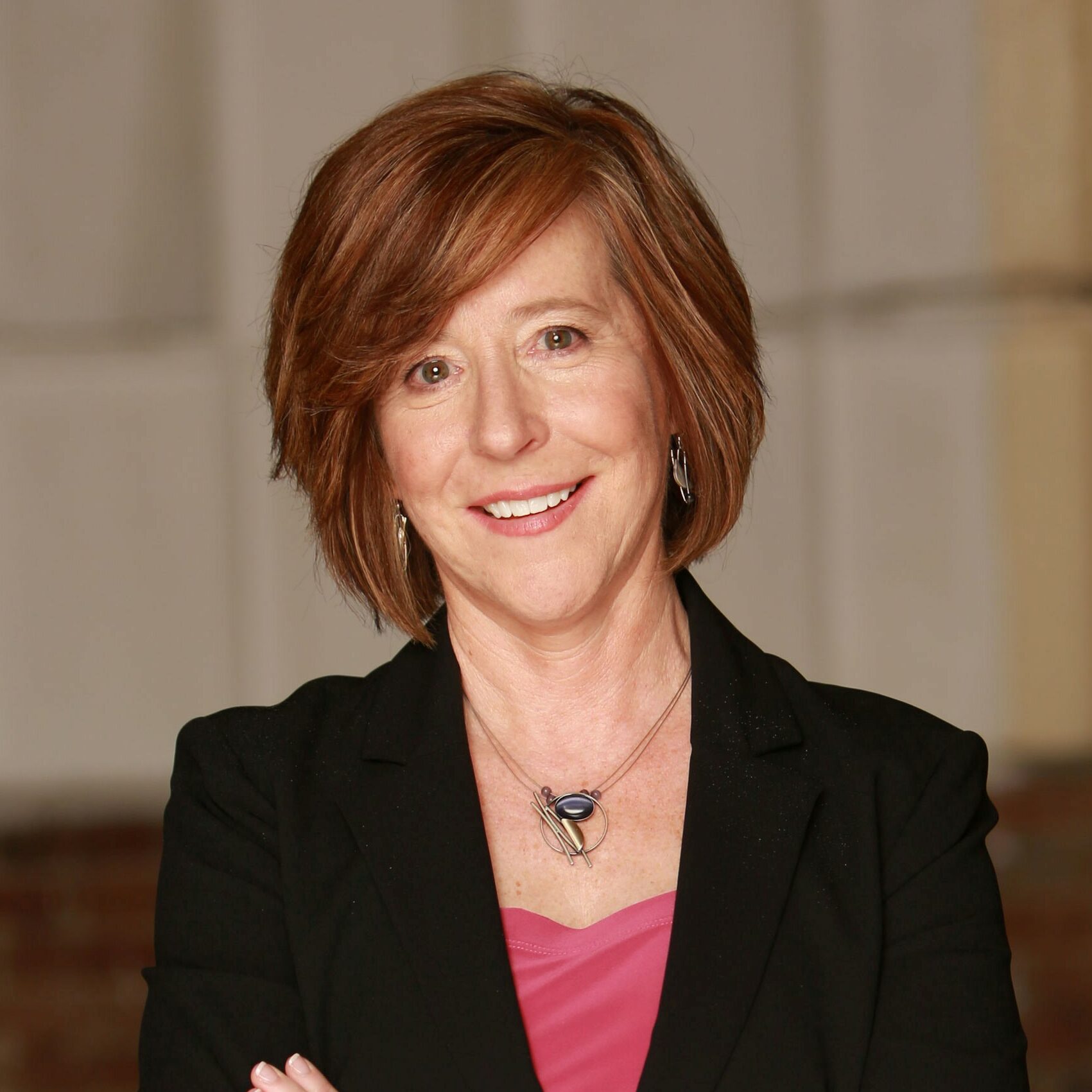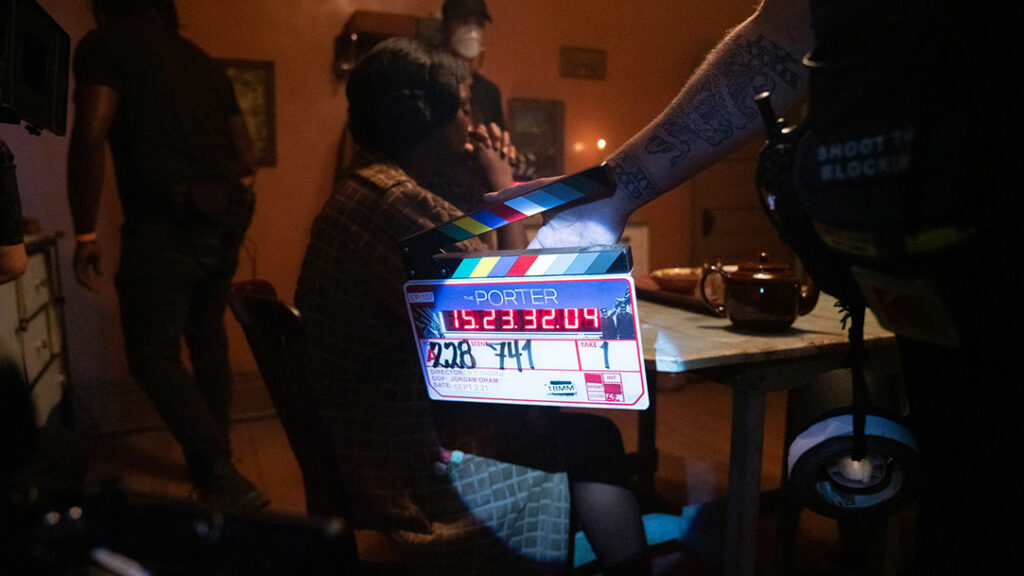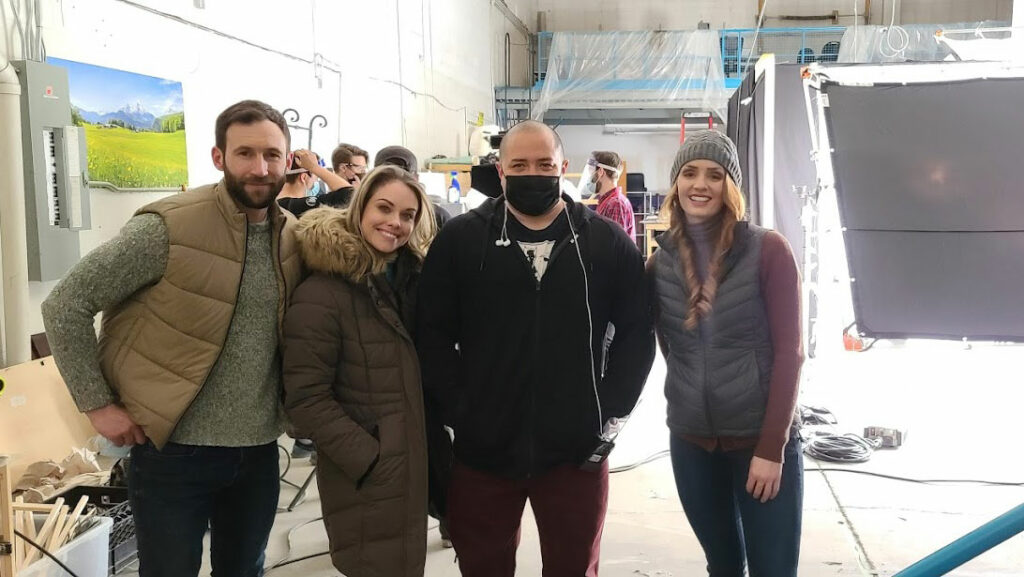
Bargaining in Focus
Nova Scotia-shot feature film Wildhood with performers Phillip Lewitski, Avery Winters-Anthony, Josh Odjick and director Bretten Hannam.
Photo: Riley Smith.

Marie Kelly
ACTRA National Executive Director
It’s been a blockbuster year for film, television and commercial production with most of Canada seeing record levels. Thanks to the excellent health and safety protocols being observed by everyone on set, studios, broadcasters and streaming services have been able to boost their production volume to meet audience demand for new content during the pandemic.
Across the country, the news is good. In Ontario, ACTRA Ottawa is currently booked up with Movie of the Week (MOW) work into 2022 while ACTRA Toronto reports film, television and digital media production volumes are higher now than they were pre-pandemic. While not quite back to pre-pandemic levels, production in Montreal has certainly bounced back with a strong mix of series, feature films, and video game projects. Manitoba performers are experiencing one of their best years. ACTRA Manitoba had a slow start at the beginning of the year and has since seen production shoot up in volume. Alberta is on track to having the best year in its history with a mix of Canadian and U.S. series as well as some smaller independent productions. Atlantic Canada has also been bursting at the seams with production this year. Newfoundland and Labrador has had multiple series shooting simultaneously and Nova Scotia has had both U.S. and Canadian series filming all over the province. UBCP/ACTRA is also enjoying another stellar year with series and MOWs dominating the local scene.
I would like to thank our ACTRA Branch leaders and staff who have been heavily involved with provincial legislators to develop new industry health and safety guidelines to keep Canadian performers safe and our industry rolling.
Our industry has helped support Canada’s economy through a difficult year. With on-set protocols changing daily or weekly to meet varying public health restrictions, I would like to thank our ACTRA Branch leaders and staff who have been heavily involved with provincial legislators to develop new industry health and safety guidelines to keep Canadian performers safe and our industry rolling. Thank you to all our members across the country for doing your part to help make this happen.
While we are happy to report these high levels of production, we are preparing ourselves for our upcoming Independent Production Agreement (IPA) bargaining this November when we will renegotiate this important agreement with the Canadian Media Producers Association (CMPA) and the Association québécoise de la production médiatique (AQPM). The current IPA expires December 31, 2021, and covers the engagement of performers in all film, television and digital media production in Canada (except in British Columbia, which operates under a separate collective agreement negotiated by UBCP/ACTRA).
We are planning for every scenario. Producers will likely lament over the cost of keeping our sets open and safe. But what they will not say is, as they have been racing to keep up with demand while we have all been self-isolating at home and craving new content, producers have been saving massive amounts of money by downloading auditions onto our members’ backs.
Some members like the flexibility of self-taping their auditions, while others prefer Zoom or in-person auditions. But even if you are a performer who prefers self-taping your auditions, these new work challenges and expenses have been downloaded onto ACTRA members. No matter what our future holds for auditioning, this important area of our work as professional performers needs to be addressed.


Creators must share the victories of our screen industry whenever and wherever possible.
Studios have a lot of power, with teams of people tasked with cutting corners to increase their bottom line. Creators must share the victories of our screen industry whenever and wherever possible. The pandemic, combined with the dramatically changing entertainment industry, makes it more important than ever to stay connected with our sibling performer unions across the globe. This past spring at the 22nd FIA (International Federation of Actors) World Congress, I was honoured to be elected to serve on the FIA Executive Committee in the role of Vice-President. I look forward to continuing ACTRA’s long-standing presence serving and representing Canada on FIA’s Executive Committee as well as the work our union does in partnership with FIA to advance the rights of performers worldwide. I would also like to take this opportunity to acknowledge and thank ACTRA National’s Past President Ferne Downey who stepped down from her role as FIA President at this year’s Congress. I look forward to building on the significant work Ferne has done to protect and promote the rights of performers.


ACTRA’s National Diversity, Equity and Inclusion survey revealed 43 per cent of BIPOC performers bring their own hair and makeup to set while 32 per cent stated they have to go off-set (at their own expense) to get their hair and makeup done.
In this global industry where change happens quickly, it’s shocking to know how far behind our Canadian industry is on a number of critical issues. We are hearing more and more reports of Black, Indigenous and People of Colour (BIPOC) performers doing their own hair and makeup because of a lack of qualified crew who are only trained to style white performers. This past September, ACTRA’s National Diversity, Equity and Inclusion survey revealed 43 per cent of BIPOC performers bring their own hair and makeup products to set while 32 per cent stated they have to go off-set (at their own expense) to get their hair and makeup done. This is unacceptable.
Vinessa Antoine does a great job tackling this serious issue in her ACTRA Magazine story, Championing inclusion on our film & TV sets. Vinessa made Canadian television history in 2019 when she became the first Black Canadian woman to lead a prime-time Canadian drama on a national television network and the first Black Canadian woman to be ‘Number One’ on a call sheet. On behalf of our union, I thank Vinessa for bravely sharing these challenges with us.
No performer should ever walk onto a set and feel as though their hair texture or skin tone is a burden.
Unequal treatment of performers on sets across the country will not be tolerated. No performer should ever walk onto a set and feel as though their hair texture or skin tone is a burden. In recent months, broadcasters, producers and media giants expressed their support of BIPOC creators and storytelling. They are being called out in Hollywood and we are calling them out here in Canada.
Our National Commercial Agreement is also up for renewal this year. We are going back to the table with the Joint Broadcasting Committee soon — to get a fair and reasonable deal for our members.
With this being such an important year for us in bargaining, please remember ACTRA members have more than a voice – together, we have power, we have influence, and we can make change.


We know the people we sit across from at the bargaining table can be tough. When we reach out for your support, we need to know you are with us.
Our negotiations will require a show of strength from ACTRA members. We are seeking improvements that reflect where we are in 2021 with respect to how people are treated on- and off-set. We know the people we sit across from at the bargaining table can be tough. When we reach out for your support, we need to know you are with us. If engagers start crying poor (even though this is false), we must be ready to have each other’s backs every step of the way from coast-to-coast-to-coast.
On behalf of ACTRA, I would like to welcome our new National President Eleanor Noble. Eleanor is dedicated to serving ACTRA members across this country, and committed to protecting performers’ rights, strengthening our working conditions through collective bargaining and advocacy, and taking action to increase diversity, equity, inclusion and belonging. I encourage you to learn more about Eleanor in the “Getting to Know Your President” Q&A with ACTRA National Vice President Keith Martin Gordey and Eleanor’s first “President’s Message” in this fall issue of ACTRA Magazine. I would also like to thank David Sparrow on behalf of our members for his dedication and hard work throughout his two terms as our National President. We are thankful David will continue to serve our union as a National Councillor and as Past President.
Finally, I am happy to report ACTRA Performers’ Rights Society (PRS) has been working harder than ever to ensure residual income is received by performers. ACTRA PRS collected 30 per cent more and distributed 50 per cent more Use fees in the first five months of the 2020/21 fiscal year compared to the same period in 2019/20 before the pandemic. To find out more about Use fees and how they work, please watch our recent Use fees webinar produced by ACTRA PRS in partnership with UBCP/ACTRA and ACTRA Toronto.
Whether it’s our strong focus on bargaining, better safety protections for our members on set, distributing Use fees, our on-going work with elected officials, or our diversity and inclusion efforts to create a more equitable screen industry, we must use our collective power to make life better for all our members. It’s our solidarity as a union that gives us the power to negotiate for fair treatment and renumeration and safe and respectful working conditions.
And we do this together.
In solidarity,
Marie Kelly
